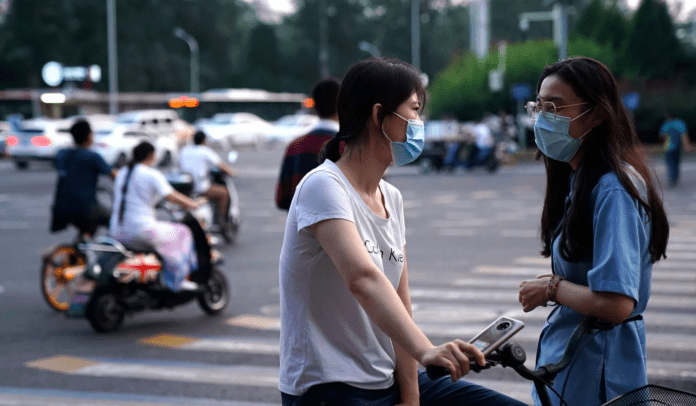The article was originally published by National Review.
In January, a video surfaced of a woman chained up in a shack in Fengxian County, Jiangsu Province, China. Her inhuman experience of being abducted, trafficked, and raped repeatedly while bearing eight children caused shock across China’s heavily censored Internet. After the woman’s story was made public, the local government issued five contradictory statements, quickly sealed off the village, silenced comments, and arrested netizens who tried to pursue the truth. To this day, questions about where she came from and whether she is now free remain unanswered. Yet it is an open secret that thousands of women are trafficked and forced into sexual slavery in China every year. Concern among Chinese citizens about the woman’s plight was quickly suppressed by the Chinese Communist Party (CCP), and the subsequent Russian invasion of Ukraine and the prolonged lockdown of Shanghai have also diverted attention from the matter.
Five months later, however, another horrifying assault became a matter of intense public scrutiny. In June, four women in Hebei Province’s Tangshan City were severely injured after resisting sexual harassment by a man at a barbecue restaurant. The women were brutally beaten by the man along with several of his colleagues. The incident challenges the Chinese government’s propaganda claims of “good law and order” and has sparked heated discussions about sexual violence in China and the differing treatment of men and women.
Public-security authorities in Tangshan seem to have taken swift action, arresting nine people involved in the case. They have also “vowed” — using scripted CCP slogans — to “crack down on crime and eliminate evil” and “bring justice to the people and peace to the public.” Yet, bizarrely, the four victims in the case, as well as their families and friends, have so far remained silent and faceless, apparently under government control, as authorities tightly restrict the flow of information and crack down on journalists seeking to interview those involved. Despite the government’s vows, there has been a dramatic increase in feelings of insecurity among the Chinese people — especially women — and a growing number of incidents proving that women cannot count on government protection in the face of powerful men.
Admittedly, men are also often the targets of bullying by nefarious elements. But women, with disparate physical strength, are easier to bully and more sexually appealing to criminals. In fact, women are often beaten up for resisting sexual harassment, and their boyfriends (or courageous male bystanders trying to do the right thing) are detained or even sentenced to prison time for defending them every day across China. The perpetrators may be either gang members or casual criminals, but the common feature of all these cases is that they are targeted crimes of sexual violence against women.
Humans are not beasts, and while gender violence in the broadest sense still exists systemically, sexual violence is an atrocity committed by a relatively few villains. Yet the brutality of the Tangshan case is beyond mere contempt. The vast majority of men with a sense of justice, even if they are afraid to stand up for themselves because of the inadequacy of the legal system, will pity victims and denounce violent thugs. Yet there are also men who empathize with the male offender’s shame at being rejected, his anger after a failed rape, and his “manliness,” which requires him to save face by using violence. In a criminal case where all the perpetrators are men and all the victims are women, they do not feel women’s fear; they only resent women’s anger. They do not care to cry out for the weak; they only care about “fist-waving women” (homophonic to “women’s rights” in Chinese). And they refer to the feminist movement as the “humiliation of men.”
On the one hand, there is the extraordinary courage of “girls helping girls” at the crime scene, and on the other hand, there are the aggrieved justifications of boys helping boys in the battlefield of public opinion. On one side is women’s fear of gender violence and social policing, and on the other side is “men’s rights” activists’ fear of women’s awakening. And this widespread misogyny among Chinese men comes directly from the CCP’s top leaders.
When the “Five Sisters of Feminism” were arrested on May 7 (the eve of International Women’s Day), 2015, for plotting an “anti–sexual harassment on buses” campaign, Xi Jinping took action and declared the CCP’s attitude toward feminism. Since then, feminism has been unfairly smeared for “creating gender confrontation,” “tearing society apart,” “affecting social stability,” constituting “a proxy for foreign forces,” and promoting “an American ideology.” Feminist activists in China who have never had any plans to “incite subversion of state power” have begun to be treated as political dissidents because they intend to “subvert” patriarchal and male supremacy.
In April of this year, the Central Committee of the Communist Youth League of China published a statement on Weibo, a popular blogging website, disparaging “extreme feminism” as a “cancer” on China’s Internet. The “men’s rights movement,” encouraged by authorities, attracted a large number of young men who felt stressed in the workplace and frustrated in their relationships with the opposite sex, successfully diverting their potentially regime-threatening resentment and energy into verbal violence aimed at female compatriots. In the end, the struggle for the equalization of women’s rights versus men’s rights in China has been distorted and reduced to “opposing perspectives” between women and men.
To read more, click here.



